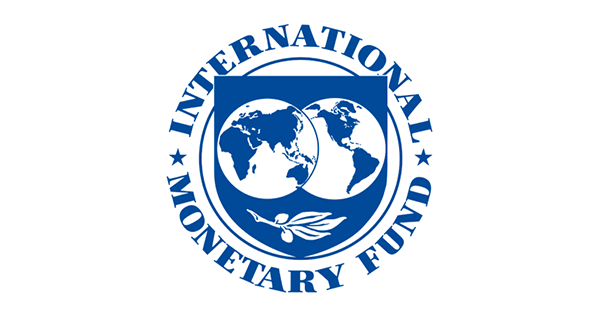- Ferrari Just Built a New F40 Tribute as a One-Off Road & Track
- Ferrari SC40: A 1-of-1 Modern Homage to the F40 duPont REGISTRY News
- This One-Off Ferrari F40 Tribute Is Missing Two Things From The Original CarBuzz
- One-off Ferrari SC40 is inspired…
Blog
-
Ferrari Just Built a New F40 Tribute as a One-Off – Road & Track
-

Animal Print Takes the Spotlight at Conner Ives and Jimmy Choo’s Tribeca Dinner
The limited-edition Conner Ives x Jimmy Choo capsule may have debuted at Ives’s Autumn/Winter 2025 show during London Fashion Week, but the celebrations carried on stateside. On Thursday night, the designer gathered friends and muses for an…
Continue Reading
-

Introductory Remarks at the IMF’s Western Hemisphere Department Press Briefing By Rodrigo Valdés Director of the Western Hemisphere Department 2025 Annual Meetings
Introductory Remarks at the IMF’s Western Hemisphere Department Press Briefing
By Rodrigo Valdés, Director of the Western Hemisphere Department
2025 Annual Meetings
October 17, 2025
Over the past months, Latin America and the Caribbean have been navigating through shifting winds of a changing and uncertain global environment. Our Regional Economic Outlook discusses how the region has fared and the challenges ahead. Let me share a few highlights from our report.
Growth in Latin America and the Caribbean has experienced no major disruptions in the first half of 2025. It is projected to remain steady at 2.4 percent in 2025 and moderate slightly next year, with risks tilted to the downside.
Despite uncertainty, global conditions have been broadly supportive:
- Commodity prices have stabilized after a brief period of volatility;
- Financial conditions have eased amid declining sovereign spreads and a weaker US dollar; and
- Regional exports have kept pace with global trends.
Labor markets remained robust, generally supporting private consumption in most economies. Low trade exposure of many economies to the United States and lower tariffs compared with other emerging economies have also provided buffers.
Against this background, macroeconomic policy calibration remains a challenge in several countries. While most countries are expected to strengthen their fiscal positions, structural primary balances are projected to be lower than anticipated, indicating unwelcome delays in fiscal consolidation.
In fact, with public debt ratios rising, fiscal consolidation is increasingly important to mitigate risks of decompression in risk premiums. Insufficient fiscal effort complicates not only debt sustainability but also the effectiveness of monetary policy—I will come back to this later.
On the monetary policy front, inflation remains above target in some countries, amid relatively balanced risks. While robust labor markets and fiscal concerns slow disinflation, recent exchange rate appreciation is helping in some cases.
Central banks have responded appropriately, remaining data driven, and inflation expectations are stable but also remain above targets. Continued caution is warranted, especially in cases where economic slack is not evident and inflation remains above targets.
Looking ahead, the region’s potential growth remains stuck in its low historical average and lagging its peers. This reflects slowing labor force expansion, low capital accumulation, and stagnant productivity.
This year’s report has undertaken two analytical studies to better understand some policy challenges.
One focuses on interactions between monetary and fiscal policies. Reforms to enhance central bank independence have helped achieve price stability. However, high public debt and deficits can constrain monetary policy. To safeguard price stability, countries must focus on advancing fiscal consolidation and improving fiscal frameworks. Lower debt levels make monetary policy more effective, aiding convergence to inflation targets.
The second investigates some drivers of low total factor productivity in the region. Exploring firm-level data, we show that this is partly explained by persistent resource misallocation and sluggish productivity growth among firms. More productive firms face barriers to expand, which calls for reforms to address frictions—including size-based regulations, financial constraints, and limited competition.
The Fund remains closely engaged with the region through policy advice, capacity development, and financial support.
In terms of program engagement, since April, Barbados completed its arrangement under the Extended Fund Facility and the Resilience and Sustainability Facility, and a new Flexible Credit Line (FCL) has been launched with Costa Rica, while Colombia canceled its FCL.
To sum up, the global landscape is shifting, but this is no reason for inaction. As the saying goes, countries may not control the winds, but they can adjust their sails. Reinforcing policy frameworks, rebuilding fiscal buffers, and fostering growth opportunities are the sails to adjust.
Before returning to Julie, let me also remind you that I will be leaving the Western Hemisphere Department by the end of this month, moving to the Fiscal Affairs Department. WHD new director will be Nigel Chalk – sitting here – who already supervises several countries and activities and guarantees a seamless transition.
IMF Communications Department
MEDIA RELATIONS
PRESS OFFICER: Julie Ziegler
Phone: +1 202 623-7100Email: MEDIA@IMF.org
Continue Reading
-

Call for papers – Advancing research and management of menopause
BMC Medicine is calling for submissions to our new Collection, Advancing research and management of menopause, focusing on new perspectives and care practices that support individuals during this significant life…
Continue Reading
-

Keanu Reeves Says His Worst On-Set Injury Came From His GOOD FURTUNE Comedy
You’d think after The Matrix and John Wick, Keanu Reeves would have endured every kind of cinematic injury imaginable. But according to the actor, the worst pain he’s ever felt on a movie set didn’t come from a hardcore action film, it…
Continue Reading
-

Deloitte to pay $34mn over audit work on US nuclear fiasco
Unlock the Editor’s Digest for free
Roula Khalaf, Editor of the FT, selects her favourite stories in this weekly newsletter.
Deloitte has agreed to pay $34mn to investors who blamed the auditor for losses stemming from the collapse of one of US’s largest nuclear power projects, a rare legal settlement by a Big Four firm.
Former shareholders in the South Carolina utility Scana said Deloitte failed to spot red flags and allowed management to hide mounting problems with the construction of two nuclear reactors a decade ago.
Scana shares tumbled when it eventually abandoned work on the reactors in 2017, leading to its cut-price sale to a rival utility and jail time for its former chief executive, who pleaded guilty to misleading regulators. The fiasco also pushed construction company Westinghouse into bankruptcy.
Lawyers for Scana’s shareholders claimed Deloitte should pay a portion of losses estimated at $800mn, because the firm repeatedly signed off on financial statements in which the company indicated the project would be finished on time.
A judge will need to approve the settlement, which was filed in South Carolina federal court on Friday, but plaintiff lawyers called it an “excellent result” for shareholders. It comes on top of a $192.5mn settlement from Scana and its officers in 2020.
“The $34mn recovery from Deloitte is one of the largest securities class-action settlements against an auditing firm in the last decade,” the lawyers wrote.
“The settlement was also reached after extensive litigation, at a time when the parties were fully aware of the strengths and weaknesses of their respective positions, and was the culmination of extensive arm’s length negotiations overseen by a well-respected mediator.”
Deloitte on Friday said: “Deloitte stands behind the quality of its audit work and is participating in this settlement to avoid the ongoing cost and distraction of extended litigation.”
Investors face a high legal bar for implicating auditors in the securities frauds of their clients because audits are meant to provide only “reasonable assurance” that financial statements are free of error. In the largest recent settlement, PwC paid $65mn in 2015 over claims related to the collapse of the brokerage MF Global.
Years of litigation shined a harsh spotlight on Deloitte’s audit, particularly how the firm dismissed claims from a Scana whistleblower who said as early as 2015 that the reactors would not be completed in time to trigger vital government subsidies.
One of Deloitte’s own construction experts conducted an internal review of the firm’s work after the fact, and penned a six-page handwritten memo concluding it should have done more to investigate the whistleblower’s claims.
Deloitte has said it stands behind its work and argued in court that Scana’s financial statements contained plenty of warnings about the project’s risks. Its settlement does not indicate an acceptance of liability.
Continue Reading
-

Orion spacecraft makes crucial move toward its 2026 launch to moon
Oct. 17 (UPI) — NASA’s Orion spacecraft was moved seven miles to the Vehicle Assembly Building at Kennedy Space Center Thursday, its second-to-last move before its scheduled launch in 2026.
NASA got an exception to allow it to continue work…
Continue Reading
-

The Masquerade – Bloodlines 2 — Mysteries, monsters, and the Masquerade
The steam rises from the dark underbelly of Seattle’s streets, where neon lights flicker like the last breaths of a dying world. In these streets lies a hidden society, deeply rooted in tradition, politics, and an ever-shifting…
Continue Reading
-

‘Rocky IV’ star Dolph Lundgren shares the money mistake that made him more hands-on with his finances
By Charles Passy
The Swedish-born actor, who played the boxer Ivan Drago in ‘Rocky IV,’ has now gone into the vodka-making business and taken a more hands-on approach with his finances
Dolph Lundgren has appeared in more than 75…
Continue Reading
